May 2022 – COA Patient Advocacy Network News Bulletin
Advocacy Chats – Insightful Conversations on Policy Issues & Cancer Research
Clinical Trials – Conversations with Community Oncologists
Clinical trials are one of the most important tools in cancer care, allowing community oncologists to deliver cutting edge treatments—and hope—to their patients. What do patients and families need to know about clinical trials, how have they evolved, and how can they be improved? May is National Clinical Trials Month. Please join COA’s Director of Patient Advocacy and Education, Rose Gerber, MS, on May 11 at 12:00 p.m. for a discussion about the ins and outs of clinical trials with Dinesh Kapur, MD, practicing oncologist and Director of Clinical Research at Eastern Connecticut Hematology and Oncology Associates and the physician chair of OneCouncil. View the entire video here.
ICYMI: Addressing Equity in the Health Care System
Discrimination leads to a lower quality of life. How can the health care system become more equitable, encourage patients to seek treatment, and create better health outcomes for those historically left behind? During April’s Advocacy Chat, COA’s Rose Gerber, MS, and Alan Balch, PhD., CEO of the Patient Advocate Foundation and National Patient Advocate Foundation, explored the effects of discrimination in the health care system and how to increase equity. Stream it on @OncologyCOA’s YouTube channel today.
Understanding Advocacy in a Community Oncology Setting – Understanding Advocacy in a Community Oncology Setting
Advocates can engage with policymakers through calls, letters, meetings, and social media, but the underlying strategy is key to an impactful effort. The first step when engaging with policymakers is to set intended goals for outreach and identify desired outcomes. Once goals are established, advocates can target policymakers who may be most receptive.
Before engaging with policymakers, advocates should prepare messages that incorporate compelling, personal stories to help advance community oncology policy positions and data that quantify or explain the problem or need for policy change. Together, personal stories and data can balance the “head” and the “heart,” creating well-rounded and effective messaging. With goals, strategic targets, and clear messaging, advocates can engage with policymakers and make meaningful change.
- Learn more about community oncology, the challenges that practices face, and how you can get involved by visiting CPAN’s Education & Resources library.
Cancer News You Can Use
Black Patients Less Likely to Get High-Tech Prostate Cancer Therapy
HealthDay 05/02
Use of a high-tech radiation cancer treatment called proton beam therapy (PBT) has increased overall in the United States, but Black patients arere less likely to be treated with PBT than white patients (0.3% vs. 0.5%), especially for cancers for which PBT is recommended over traditional radiation therapy, according to two new studies.
Can Complementary Therapies Ease Cancer Treatment Symptoms? What the Science Says
TIME 04/27
Complementary and alternative medicine have become increasingly popular in the United States among cancer patients specifically over the past few decades. Little evidence exists to support the efficacy of either method to treat cancer, but they may help ease some of the unpleasant side effects of cancer treatment when used alongside conventional medicine, according to the National Cancer Institute.
High Medical Bills Tied to Worse Outcomes for Younger Cancer Survivors
HealthDay 04/27
U.S. cancer survivors under age 65 with medical-related financial struggles have an increased risk of early death, a new study finds. “Our findings show the need to address financial hardship to ensure that cancer survivors do not delay or forgo necessary care because they cannot afford it,” said lead author Dr. Robin Yabroff, the scientific vice president of health services research for the American Cancer Society.
How to Tell Whether a Cancer Is Caused by Plain Bad Luck
Scientific American 04/26
The distinction between cancers that result from a combination of spontaneous mutations and environmental exposures to carcinogens matters because of the implications for cancer prevention. If a cancer is mostly caused by toxic exposures, then public health efforts should focus on strategies to prevent those exposures; if a cancer is mostly the result of random mutations, then little can be done to prevent it, and efforts might instead focus on early detection and treatment. Now a team of researchers has addressed this ongoing controversy with a degree of mathematical exactitude.
Study Mines Cancer Genetics to Help with Targeted Treatment
The Associated Press 04/21
Scientists analyzed the full genetic blueprints of more than 18,000 cancer samples, finding new patterns of mutations that could help doctors provide better, more personalized treatment. Genetic sequencing is already being woven into cancer care as part of the growing trend of personalized medicine, or care based on a patient’s genes and specific disease. Now doctors will have much more information to draw from when they look at individual cancers.
Resources for Chapters
Recent News & Updates
Administration of cannabidiol (CBD) was safe and associated with what researchers described as intriguing results regarding scan-related anxiety among women with advanced breast cancer, experts explained in an exclusive interview with CURE®.
Dana Romano's mom, Marilyn, headed home from the Dozoretz Hospice House of Hampton Roads in Virginia Beach on Monday evening after spending a few days in respite care while her family was out of town.
An opportunistic infection is one that a person with a healthy immune system is unlikely to get.
Lately, I have been forgetting that I don't have hair. I involuntarily lift my fingers to my scalp to brush away loose strands, but instead my fingers touch a domed, smooth surface.
